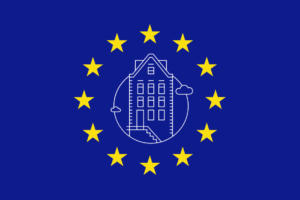EAA Case Study: The Netherlands
 The European Accessibility Act has galvanized many European countries and The DAISY Consortium has been pleased to take part in many interesting and collaborative conversations with partners, members and interested parties.
The European Accessibility Act has galvanized many European countries and The DAISY Consortium has been pleased to take part in many interesting and collaborative conversations with partners, members and interested parties.
Each country has their own story and their own unique set of experiences in approach to the EAA and we are attempting to capture some of these in our new series of case studies. The more we can share and learn from each other, the better prepared we hope everyone will be.
The Netherlands
This case study looks at the work undertaken in The Netherlands where we spoke with Hans Beerens from Dedicon, an organization committed to producing content in accessible formats for print disabled readers in this market.
Awareness of the importance and benefits of accessible publishing appears to be good and Dedicon has close relationships with the trade association, Mediafederatie, which includes GEU for educational publishers and GAU for trade. These 2 represent approximately 80% of the market in The Netherlands. The education market is particularly motivated to provide accessible content to all learners.
Industry Collaboration to Increase Awareness
In The Netherlands there have been 2 major projects: TPUB 1 (2018-2019) and TPUB 2 (2021-2022) which have concentrated on born accessible publishing, bringing together the industry for effective and focused collaboration. These projects have served to increase awareness, highlighting the business case and giving publishers a head start. There is significant emphasis placed on collaboration between all interested parties in this market and how to support the publishing community to improve awareness and knowledge. Partners working together on these projects include among others:
- Dedicon
- KB (National Library)
- Vereniging Onbeperkt Lezen
- Oogvereniging
- VIVIS
- Mediafederatie, including GEU and GAU
- Accessibility.nl
Government support for all the work being done has been high and both projects have been funded by the Ministry of Culture and Science but additional funding is needed for the completion of TPUB2.
International collaboration has also proved to be very beneficial and Dedicon participates in the project SIDPT – Supporting Inclusive Publishing through Training, alongside colleagues from France and Austria. In 2022 the publication of the learning platform Inclusive Publishing in Practice will provide learning modules in Dutch, French, German and English under an open Creative Commons license.
Starting Small
Hans highlighted the very real challenge of knowing where to start with accessible publishing. For many, it has proved to be a daunting prospect and one particular outcome of both projects has been to help publishers get started once their awareness had been improved.
During the TPUB1 project the focus was on providing 2 short guides to help publishers with quick wins and to give them a place to get started on their accessibility journey. During TPUB2 a third guide was published and a fourth is due in 2022.
Further Training
TPUB2 has built on the training and resources provided in the 1st project, with special focus on providing training for trade publishers via online workshops and in-depth sessions on web accessibility and EPUB. Next year the focus will switch to more challenging areas, broadening knowledge and improving confidence. The workshops are provided via https://www.inclusiefpubliceren.nl/workshops and include:
- Awareness sessions where a very high percentage of publishing organizations participated.
- Basic knowledge and skills module. These will be held in Q3 and Q4 2021 starting with a workshop for both educational and trade publishers to introduce publishers to the practical aspects of accessibility and low-hanging fruit. All 24 workshops will be held online and are encouraged to join with at least 2 professionals from their publishing organization.
- In-depth knowledge and skills module. Will be held early next year. These will be about more complex aspects of accessibility and more complex guidelines, both for web and EPUB.
- Module on embedding and organizing. This session will be about how to organize accessibility within an organization.
Having a Knowledge Base
During both projects it became important to have a place that everyone can refer to and to store valuable links and resources. Dedicon currently host the site Inclusiefpubliceren.nl which is a joint effort of all the stakeholders and managed by the TPUB2 steering group. This is a knowledge base for Dutch publishers and anyone interested in inclusive publishing.
Challenges in this Market
- The majority of publishers still work with EPUB 2 and an understanding of the opportunities that EPUB 3 offers needs to be improved.
- There are many very small publishers in The Netherlands with very specific workflows. Getting them to change these workflows will be challenging.
- Metadata: the industry needs to understand what needs to be done in order to meet the legislation and to collaborate in order to share and distribute accessibility metadata.
Top Tips for Other Publishers on their Accessibility Journey
- Practice what you preach! Make accessibility accessible with practical hints and simple step by step guidance
- Focus on quick wins to build confidence and get started
- Share information with international colleagues to share questions about the EAA and create a knowledge base
Our thanks to Hans for his collaboration on this case study. If you are interested in the work being done by Dedicon in this area or would be interested in taking part in a similar case study please contact us for further information.

